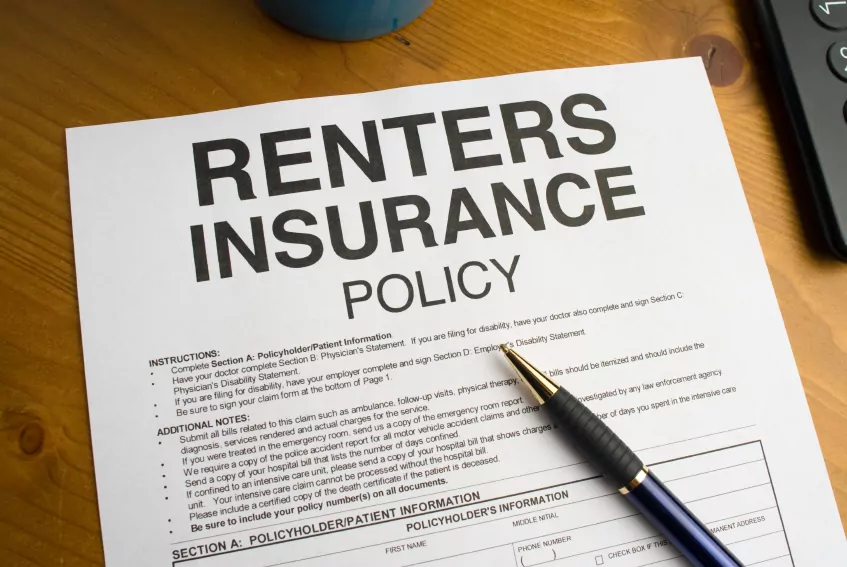As a property owner, the goal is to lease units to quality tenants who pay rent on time. However, sometimes squatters will move in and try to take possession of your property without paying rent or signing a lease agreement.
Use this guide titled “Squat Eviction” as a resource for squatter rights and steps for evicting a squatter who is living in your property without permission.
Key Takeaways
- This article contains my personal experiences of evicting squatters or tenants who became squatters. Check that out in the Pro Tips.
- You can get squatters in three common ways: (1) They were living in the property when you purchased it, (2) Your property has been unoccupied for a long time, and a squatter moves in without you knowing, (3) An existing tenant doesn’t leave after a lease expires and doesn’t pay (this may legally be an overstay instead of a squatter).
- How to get rid of a squatter: Understand the law, try to negotiate, and if that fails, file eviction.
- Make sure to follow the local legal guidelines for eviction by working with a local attorney.
Pro Landlord Tip from Saad Dar (Landlord with direct eviction and squat evict experience)
- Don’t Stress, Get Prepared: Squatters and Evictions can be very stressful. But do not fear. It’s a part of the real estate business. The best thing you can do is educate yourself and work with a very good attorney. Once you do that, there is not much to stress about. Follow the process we detailed below, and don’t be afraid to follow through with it ALL THE WAY!
- Legal Resources: As a landlord with direct experience of evictions and squatting in Blue states (super tenant friendly). I strongly recommend that you speak with an experienced local attorney that specializes in evictions. I personally use Rocket Lawyer. I have a monthly subscription, so I can ask lawyers questions, and they usually reply within a day. After that, you can speak to those lawyers or search for other lawyers on the Rocket Lawyer Network. Also, you can search on Google for top eviction attorneys in your area.
- Cost of Attorneys: In some cities like Philadelphia, eviction attorneys offer their services for a fixed fee (e.g., $1,500 – 2,000). In other cities, attorneys charge by the hour anywhere from $150-250+ per hour, so you can imagine this can become very expensive. Be sure to assess the cost upfront and use that to inform how you interact with and negotiate with the squatter.
- Don’t Take Shortcuts: Make sure to follow the local city and state requirements. If you do not follow the instructions, you will have to start the eviction process ALL OVER AGAIN, wasting more time and money.
Use Baselane for Rent Collection: What does this have to do with eviction? If you are evicting existing tenants who aren’t paying and overstaying (lease is expired or terminated), you need evidence of all rent invoices, late fees, notices, and payments. Baselane automates online rent collection and late payment notices so you have a full record.
What is a Squatter?
A squatter occupies a property without the owner’s permission. They don’t pay rent or property taxes and have no legal title to the property.
In most situations, squatters move into a vacant property they think has an absent landlord who won’t notice. These properties are usually vacant homes but can be commercial real estate, like offices or warehouses. Squatters can also move abandoned schools and hotels.
Sometimes squatters are illegal roommates or subletters who refuse to leave after a lease ends. Previous tenants who don’t move out when the lease term expires are a type of squatter called a holdover tenant. Some tenants might even be victims of rental scams who don’t know they’re squatting.
Your existing tenants can also become squatters if their lease is over or terminated, but they have not moved out and are not paying rent. These types of squatters are classified as overstay or stayover.
Learning how to screen tenants carefully from the start can help you avoid many of these situations before they happen.
Difference Between Squatting and Trespassing
Someone sneaking into an empty house to grab something or cause trouble who is planning on staying is considered trespassing. This is a criminal offense, and a quick call to the police usually gets things sorted.
Squatters are a different story. They find an empty place and move in, sometimes creating fake leases to get the lights turned on or to tell the police they live there legally. This is a civil matter, and in most cities and states, squatters can only be removed from a property through a legal eviction process.
Risk of Damage Caused by Squatters
These unwanted occupants can cost you in more ways than one:
- Rental Income Loss: If a squatter moves into a rental property without permission and refuses to leave, you can’t lease the unit or collect rent payments until the squatter is evicted.
- Property Damage: Squatters might not care for the property, leading to extensive damage, like broken windows or vandalizing the property.
- Missing Valuables: Items left in the property could go missing, like furniture, appliances, and other valuable items.
- Additional Expenses: Legal fees, repair costs, and missed income can add up quickly. You could incur additional expenses like utility bills, property taxes, and HOA fees.
What are Squatter Rights, and Why Do They Have Rights?
Even though squatters stay on a property they don’t own or rent, they have legal rights. These squatter rights are called adverse possession laws that prevent landlords from evicting a squatter without proper notice and legal procedures.
U.S. squatter laws were originally developed by residents in major cities seeking affordable housing and protection. This transitioned into an adverse possession claim, giving squatters legal ownership of a property after an extended period if they meet certain conditions:
- Continuous Possession: They have been continuously living on the property.
- Hostile Possession: They do not legally own the property.
- Open Possession: Their stay isn’t secret; it’s clear and open.
- Actual Possession: They are physically present and using the property.
- Exclusive Possession: They treat the property as their own.
Which States Have Squatters Rights?
Every state has squatter rights, but the period of time a squatter must stay to have legal ownership rights varies. This can be anywhere between 5-20 years or more, and squatters typically have to pay property taxes and utilities.
For example, squatters in Alabama can take possession if they pay taxes for ten years. Alaska requires a squatter to live on the property for seven years and pay taxes for ten before they can get the deed.
This table outlines squatters rights in each state for how long squatters must occupy a residence before they are legally protected.
Squatters’ Rights by State
| Period of Time | States |
|---|---|
| 5 years | California, Montana, Texas |
| 7 years | Arkansas, Florida, Tennessee, Utah |
| 10 years | Alabama, Alaska, Arizona, Indiana, Iowa, Mississippi, Missouri, Nebraska, New Mexico, New York, Oregon, Rhode Island, South Carolina, Washington, West Virginia, Wyoming |
| 15 years | Colorado, Delaware, Georgia, Hawaii, Idaho, Illinois, Maine, Maryland, Massachusetts, North Carolina, North Dakota, South Dakota, Wisconsin, Ohio, Pennsylvania, Louisiana, New Jersey |
| 18 years or later | Colorado, Delaware, Georgia, Hawaii, Idaho, Illinois, Maine, Maryland, Massachusetts, North Carolina, North Dakota, South Dakota, Wisconsin, Ohio, Pennsylvania, Louisiana, New Jersey |
How to Evict a Squatter?
Squat eviction rules and regulations vary by state, but here are some general guidelines for evicting squatters.
- Understand the Law: Local landlord-tenant laws provide a framework for evictions. It’s often best to consult a real estate lawyer who can advise on the eviction of squatters.
- Consider a Negotiation: In some cases, proposing an incentive for the squatter to vacate is better than a prolonged legal battle. If an agreement is reached, ensure it’s legally documented to avoid any disputes.
Pro Landlord Tip from Saad Dar (Landlord with direct eviction and squat evict experience):
Examples of Negotiating with Squatters
- Example 1: One of my landlord friends offered a tenant who became a squatter one month of rent to leave. The tenant, who was legally a squatter, agreed to take the extra payment and leave.
- Example 2: I personally acquired two properties that were occupied by “squatters”. I acquired the properties for a very low price, so I thought it was worth the hassle of negotiate with the squatters. The squatters were tenants from the previous owner who had an expired lease and refused to pay. I ended up paying each squatter $2,000 to leave. However, we required that they provide keys in hand in exchange for the cash. After all their possessions were removed, they had signed a legal notice confirming they were leaving, and we had full access to the property.
- Issue an Eviction Notice: Provide a written notice of eviction to squatters that specifies when they have to vacate the property. This notice should be done by an attorney to ensure it’s legally binding.
- Initiate Legal Proceedings: If the eviction notice doesn’t prompt action, filing an eviction lawsuit is the next step. Be prepared to present evidence – this might include the date you discovered the squatter, the duration of their occupancy, and proof that you’ve correctly followed eviction protocols.
- Enforce the Eviction: If the court approves the eviction, you’ll get a Writ of Possession to reclaim legal ownership rights of your property. Local police officers can enforce this order, ensuring the squatter departs or is removed.
- Recover the Property: Change the locks right away. Remove any belongings squatters might have left behind. You may need to provide a written notice or allow time for the items to be retrieved. Then, begin repairs and lease the rental property.
Things to Avoid When Evicting a Squatter
The same legal processes that say what you can do to get rid of a squatter also outline what you’re not allowed to do in these situations as the property owner.
- Don’t Remove Squatters Yourself: Never try to force entry into a squatter property or remove squatters yourself. These actions may violate their rights and get you into legal trouble. Contact law enforcement to legally remove a squatter.
- Don’t Turn Off Utilities: It’s illegal to shut off utilities in an effort to try and make the property uninhabitable for squatters.
- Don’t Change the Locks: Changing the locks on a squatter-occupied property could be considered illegal eviction or harassment. This could also give the squatter rights to take legal action.
- Don’t Threaten Squatters: Threats of violence and verbal attacks are illegal and can escalate the squatter situation, resulting in serious legal consequences for you.
Final Thoughts
To save yourself the trouble of evicting squatters, take action to stop them from moving in. Know what questions to ask potential renters and how to run a credit check on a tenant. It’s also a good idea to regularly visit your vacant properties and secure doors, windows, and other entry points. Install security cameras at all entrances. Keep the exterior well-maintained to show the property isn’t abandoned. Consider landlord insurance for added protection against damages or lost rent caused by squatters who manage to gain access.
Baselane landlord insurance provides extensive rental property coverage at affordable rates. Get an instant insurance quote within minutes.







